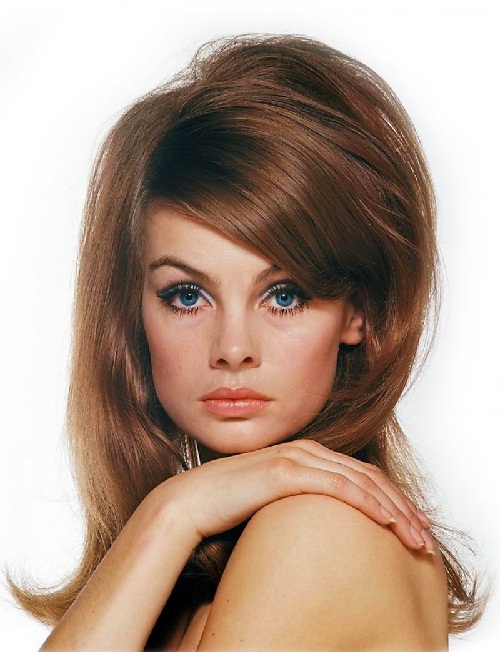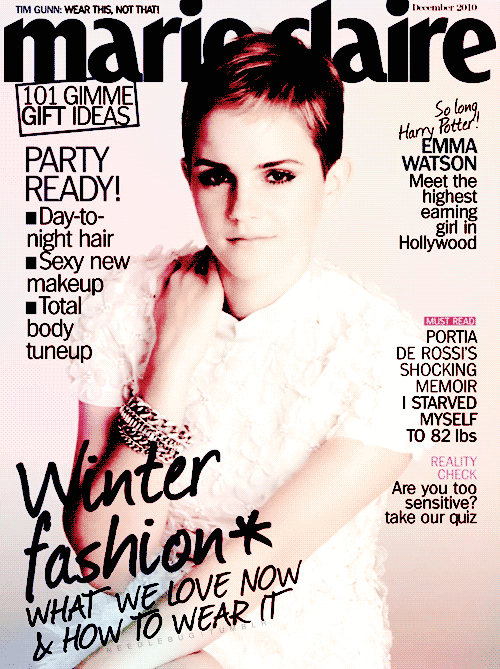1960s Most beautiful face Jean Shrimpton
1960s Most beautiful face Jean Shrimpton
English model and actress Jean Shrimpton was the fashion icon of 60s, and the most beautiful top model in the world. She was world’s highest paid, most photographed, and having the “world’s most beautiful face” model. During relatively short modeling career her stunningly beautiful face appeared in most popular magazines. In particular, Vogue, Harper’s Bazaar, Vanity Fair, Glamor, Elle, Ladies’ Home Journal, Newsweek and Time. Born on November 7, 1942, she grew up on a farm in High Wycombe, Buckingham-shire, England. Having started her modeling career at age 17, Shrimpton quickly gained popularity due to her thick bangs, curved eyebrows and look of a frightened fawn. However, her successful career owes much to chance.
In 1960, in one of the shooting studio she meets up with photographer David Bailey. On that day, Shrimpton, starred in Brian Duffy to advertise cereals, and Bailey worked nearby. Despite the fact that David’s wife Rosemary Bramble was nine months pregnant, the couple began a relationship, which later brought them both very rich fruit.
At the time of their meeting, Bailey was a rising new star in the firmament of fashion photography, due to his unconventional and innovative approach. Having a contract with British Vogue, he insisted on the participation of Shrimpton as a model in one of New York’s photo shoots.
Shrimpton has stated she owed Bailey her career, and he is often credited for discovering her and being influential in her career. In turn, she was Bailey’s muse, and his photographs of her helped him rise to prominence in his early career
As a result, in April 1962, images of Shrimpton appeared. These photos were quite well received by the public and the names Shrimpton and Bailey were the subject of extensive discussion.
A few years later, in her autobiography, published in 1990, Shripmton described her relationship with Bailey as attraction from the very first sight, and that was mutual attraction with literally electrostatically charged air.
The couple broke up in 1964. Bailey married 21-year-old Catherine Deneuve. Jean Shrimpton wrote later – “My meeting with Bailey was for me truly fatal, as both a model and as a woman I held solely because of his help. He always taught me that, in addition to a beautiful body, I should also have the mind ”
Shrimpton is credited with popularizing the mini-skirt. In 1965, she appeared on the social event in Australia dedicated to horse racing in the Melbourne Cup, in a frivolous white mini dress by Colin Rolfe, there was no hat, no gloves, or even stockings. It was unheard of insolence. Of course the media reacted to such behavior of Shrimpton, and that only increased her popularity and the popularity of the mini.
25-year-old Jean Shrimpton had a worldwide reputation. In addition to the modeling career, she decided to try her hand in film, starring in the film by Peter Watkins Privilege, 1967. In addition she had very friendly, if not romantic relationship with a famous actor Terence Stamp and poet Heathcote Williams.
At the age of thirty Shrimpton decided to leave her modeling career. In 1975, she moved to Cornwall and there opened an antique shop. There, she met her future husband, Michael Cox. In 1979, the couple had a son Thaddeus, and she extends the family business by buying a hotel in Penzance, which, by the way, operates to this day.
In the late ’80s, David Bailey persuaded Shrimpton to star in hair dyes commercials, however, Jean Shrimpton looked very pale in comparison to their previous work, and a triumphant return to the model business failed.
The recent years, Shrimpton carefully hides from the public eye, not wanting to think about her past. In 2011, in an interview for the magazine Guardian, she explained her decision to leave the fashion industry:
“In the world of fashion there are a lot of dark, troubled people. This world has enormous pressure on them, which leads to very negative consequences, fashion just burns people. Only the most sober and practical survive, such as Andy Warhol and David Bailey”.
Shrimpton said that never really aspired to be a popular model, and the fact that things have turned out this way, “I never liked to be photographed”. The woman admitted that she just can not stand the publicity and she even published her autobiography because she needed money to repair the roof of her hotel.
In January 2012, an auction was held, at which were displayed previously unreleased photos of Jean Shrimpton. The pictures were taken by less famous counterpart and contemporary of David Bailey, Ronald Falloon. Pictures where Shrimpton posed in a denim shirt, intended for publishing in “Sunday”, but had not been used even once.

We’ll Take Manhattan, Jean Shrimpton played by Karen Gillan and David Bailey played by Aneurin Barnard
The same month, the channel BBC released a film called We’ll Take Manhattan about Jean Shrimpton and David Bailey, which tells about the beginning of the career of the legendary model. The role of Shrimpton went to Karen Gillan. When reporters asked Shrimpton herself what she thinks about it, the woman said that she is absolutely not interested.
“I do not want to treat my life through the lens of the past. Of course, I know that the channel BBC made this film, but I prefer not to look back. ”
Interesting facts:
One day her friends gave Jean nickname «Shrimp», which for a long time clung to the model, and that she could not stand.
In the home library of Shrimpton there is such uncharacteristic for the former model book as an encyclopedia “Russian criminal tattoos.”











































